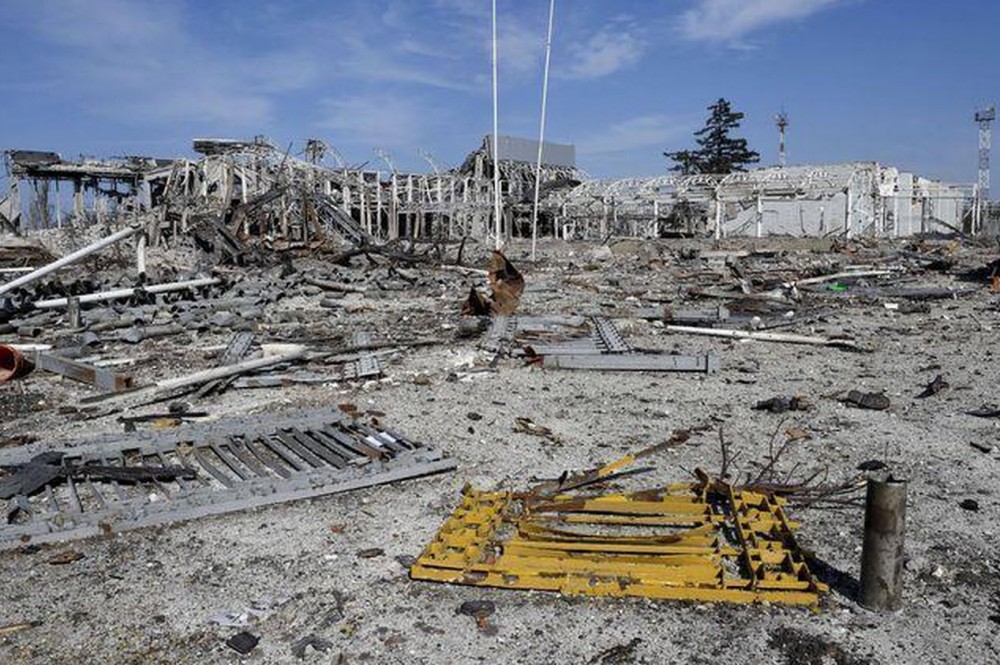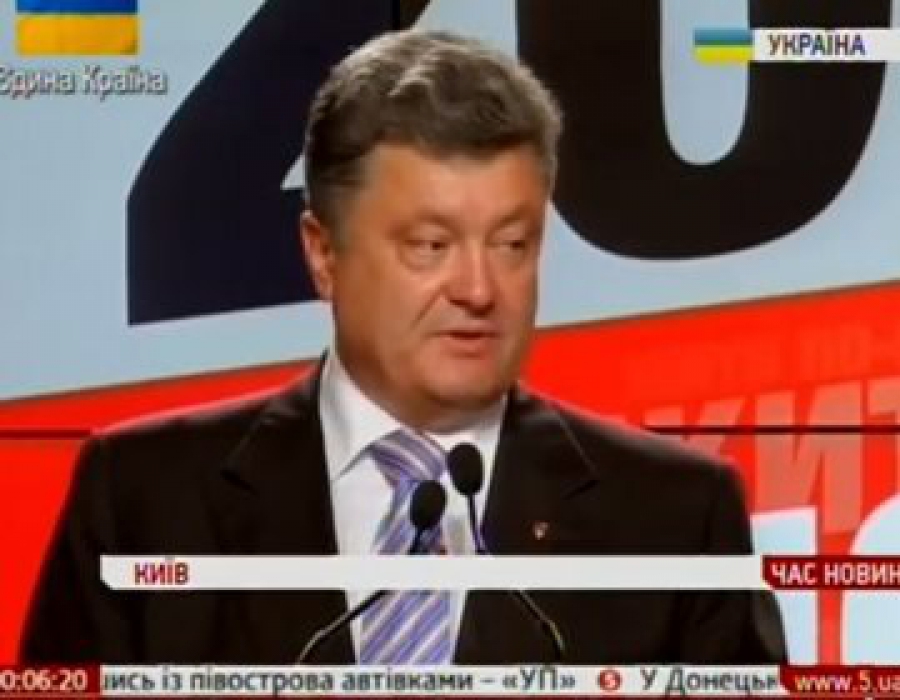 London – The war in Donbas will end some day and the most industrialised region of Ukraine will sooner or later have to decide how to live in a world which is frequently called “post-industrial.”
London – The war in Donbas will end some day and the most industrialised region of Ukraine will sooner or later have to decide how to live in a world which is frequently called “post-industrial.”
Mines and heavy industrial productions give the possibility of providing jobs for a huge number of people. However the experience of successful developed countries of the world shows that future is not guaranteed for the mines and plants.
The UK, and Wales especially, have a lot in common in terms of their past with Donbas, and may become an example for the future.
In the 19th century Wales, following England, underwent industrial revolution.
In 1851 two-thirds of the Welsh families had nothing to do with work in agriculture. Strong hands, male, for the most part, were needed in mines and metallurgic productions.
The Welsh in Ukraine
The Welsh businessman John Hughes arrived in the steppes of Eastern Ukraine in 1869 to the region which we now call Donbas.
70 other Welshmen and himself founded the village of Yuzivka and started the steel industry, which, together with coal extraction, became the basis of heavy industry on the territory of Ukraine.
Yuzivka is now the city of Donetsk, with a population of over a million. There have not been any Welshmen for a long time there, but Donbas is now experiencing approximately the same processes as Wales.
The national statistics service of Great Britain noted in their population census that in 1841, 36% of working population in Wales and England were involved in the production sphere. However in our time (as of 2011) this number constituted only 9%.
In the 21st century the leading economy sectors of many developed countries are those that are part of the service industry: finances, telecommunications, transport, tourism, healthcare, education etc.
As of 2011 in England and Wales, the service sphere involved 81% of the workforce, and only 9% were part of the industrial sphere.
The process of such change was not easy and many even now disagree with the policies of Margaret Thatcher’s government, who decided to rid the losing industries, such as coal mining, of governmental support. Her government closed the unsustainable mines and privatised the rest.
The trade unions of coal miners of South Wales and Northern England led a de facto war to protect the workers. The last peak of this fight took place in 1984-1985.
Margaret Thatcher proved that she did not want war with the miners, but a more effective economy, where the market decides which industry or which business brings revenue, and therefore is necessary, and which is losing and therefore has no right to exist.
Deindustrialisation of the West
The combination of the process of closing the losing mines and other businesses as well as the privatisation of national companies in the heavy industry, energy and communication, turned Britain into a post-industrial state.
Deindustrialisation or forced structure reforms deeply influence both European con tries and North America.
Mark Adomanis, American expert commentator in issues of economics and demographics, talks about the political consequences of the changes.
“In many Western and other developed countries such regions very quickly lost their political weight, because in America, for example, political weight is concentrated where there is economical growth and there is a big population. As soon as these regions started losing people, which moved to the so-called “sunny states”: California, etc. As America is very liberal economically, they very swiftly lost their economical weight and political significance. In Ukraine it is different – oligarch groups and clans, which control the heavy industry, have de facto captured state power and were able to create an incredibly beneficial regime for themselves, in particular a price regime for the produce of these industries. I think that this cannot go on forever, for the internal price on Ukrainian coal to be five times larger than the coal prices on the world market. And the more we postpone the solution of this problem, the more painful the change process will be. It will be more difficult to carry them out later,” said Mark Adomanis in an interview to Radio Svoboda.
With structural reforms, the government’s task lies in providing strict rules which would create the conditions for business and guarantee the protection of investments. Factors such as provision of the necessary infrastructure, both transport and communication, are important in this affair.
Possibly, the key sphere in the long-term perspective is education and in particular the ability to requalify the workers, as well as to provide their mobility within the country.
National equality and oligarchs
American economist, laureate of the Nobel Prize in 2001, Michael Spence is one of those who are convinced that porr countries may catch up with the richest and most developed countries in the world under certain conditions.
“We need to have a functional market system, for business interest to exist. The right to private property and encouragement of investment are necessary. A relatively stable situation in the country with direct laws that are fairly implemented is needed. You also need a high level of savings and investments. If we look at fiasco countries, we can see that the economy did not grow where there were political problems, and they did not approach the development of the economy. There may be different circumstances. It may be that the government is given to a group of people that are only concerned with enriching themselves. The reason may be the squabble over natural resources, control over property. There may be a simple issue of stealing. In the extreme cases wars, the lack of national equality etc. may become negative factors,” explains the economist.
Michael Spence said this in an interview long before the highly negative factors, such as Russian aggression with the loss of the Crimean peninsula and military action in Donbas, emerged in Ukraine.
His mention of political and economical consequences of national equality problems also give grounds for serious debate over the east of Ukraine.
The current Ukrainian problems are only unique to a certain extent, as the economy is developing by global rules.
Mark Adomanis says that even the problem with the oligarchs has analogues in particular in US history.
“It is possible to gradually gain control and rid yourselves of the influence of oligarchs, how it happened in the US with industrial barons. Morgan and Rockefeller did not disappear. They were slowly involved in the system that limited their activities. They gradually ended up under political pressure and were forced to behave better for their own interests. They understood that if there had been no change on their part, assertive action could have been taken against them and, possibly, they could have had their property taken away, or something similar. Ukrainian oligarch groups have such deep roots in the Ukrainian system that getting rid of them faster than over a decade will be impossible,” thinks Mark Adomanis.
Source: Radio Svoboda
Translated by Mariya Shcherbinia



